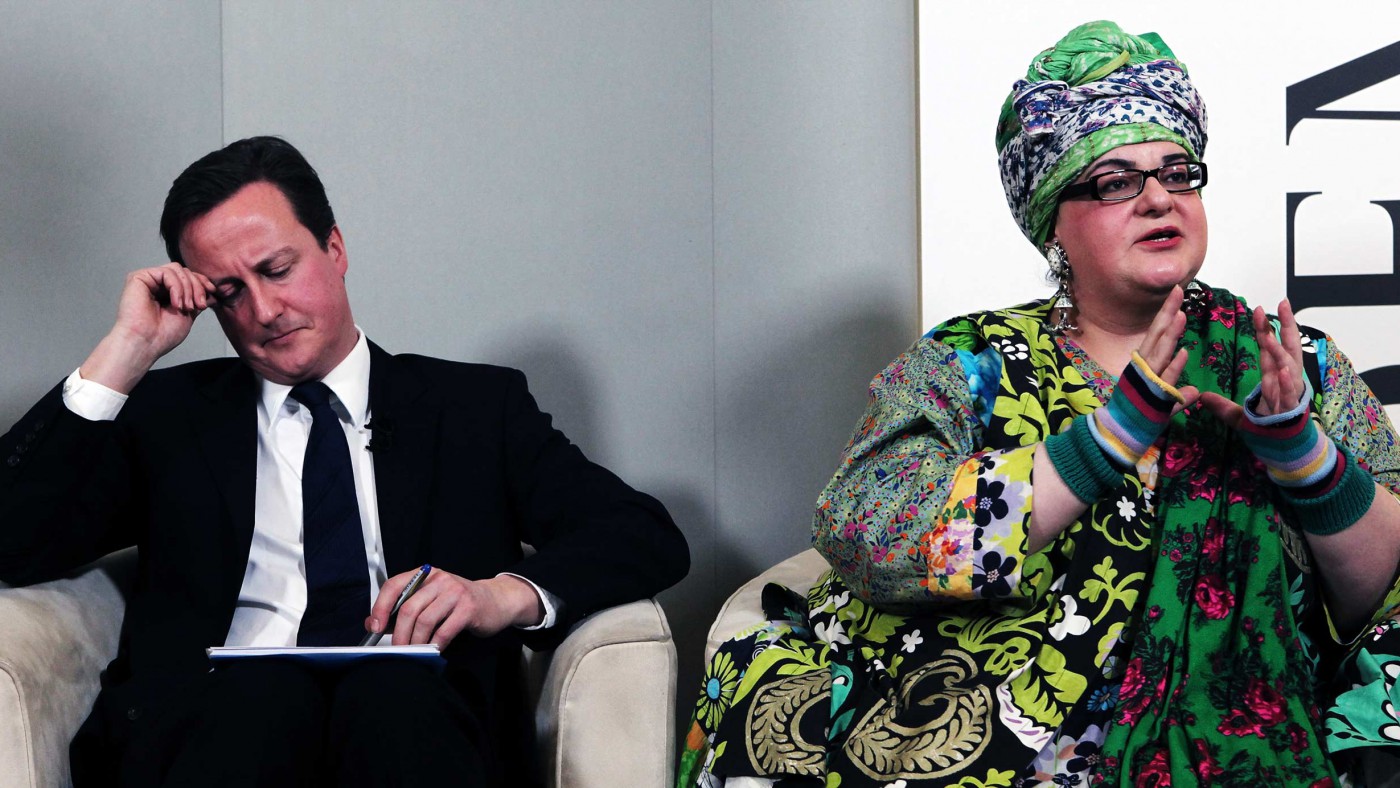The kids from chaotic backgrounds who presented themselves to her were welcomed into a unique creative, therapeutic community. Her mantra – “everyone needs to feel connected to someone who cares about them” – was the dictum behind everything Kids Company, the charity she quietly founded 19 years ago, undertook.On Wednesday it finally closed it doors for good after weeks of allegations of financial mismanagement.
Kids Company was always an outlier and Camila was always an iconoclast. She should never have been running a multi-million pound charity but it could never have become one without her singular dedication. It all ended without a grace note. Now the poor kids who depended upon her instead must turn to the more prosaic support of local social services, the absolute antithesis of what Kids Company offered them.
Ultimately the charity collapsed because civil servants, who had to manage the grants that sustained Kids Company, had had enough. The letter last week from Richard Heaton, the highly respected Cabinet Office Permanent Secretary, seeking “ministerial direction” was merely the final expression of their official opprobrium. Numerous costly publicly funded interventions to sort out the financial controls at Kids Company and to reduce their dependence on public funds had failed. Cabinet Office civil servants had long been bewildered by the heterodox nature of outcomes the projects delivered.
Now it is gone, it is worth considering quite how funding of the delivery of support to such troubled kids in South London became seemingly dependent upon the largesse of successive Prime Minister.
Understanding the extraordinary evolution of the Cabinet Office, the Whitehall department, over the the last 15 years provides a clue.
In the Thatcher and Major years, the Cabinet Office staff serving each numbered around 90 people. By 2005 under Blair it peaked at nearly 226. Within this group there was a big increase in the number of special advisers serving the Prime Minister. Major had 8 and Blair had 28 by 2005.
But it was inside the Cabinet Office where the real transformation took place. It was Blair’s commandeering of the Cabinet Office as a de facto “Prime Ministerial Department” – bolstered by hundreds of new recruits – that illuminates how the Prime Minister ultimately came to be accountable for the delivery of children’s services in Peckham.
Under Blair the century-old tradition of Cabinet Office as formally providing support for collective cabinet government, serving the Prime Minister in the role of chairman of the cabinet, diminished. Under his successors it has almost completely gone. The Cabinet Office today exists to relate almost entirely to the Prime Minister and not to supporting the Cabinet.
It was during Brown’s years that the curious emergence of the Office for the Third Sector occurred. Hazel Blears, the then Secretary for Communities and Local Government felt that, given the expanded role of charities delivering public services, the Government would benefit from having needed a dedicated strategy for the sector. Enter Ed Miliband, a trusted confidante of Brown, who was duly appointed to be the first Minister for the Third Sector. Under his stewardship this newly formed “Office” acquired a responsibility for grant making to charities, seemingly as an end in itself, and on a grand scale.
After the 2010 election, when David Cameron became Prime Minister, this role transferred to a rebranded Office for Civil Society and the money kept flowing.
With no tradition of grant making within the Cabinet Office, and little evidence of any real core capability to manage such processes, this new direct grant funding of charities can only be seen as something of an oddity. Myriad services, such as student mentoring, anti-bullying websites, community sports events, all delivered by a variety of charities and community groups, came to be funded. Trying to find out who was funded and why is still pretty much impossible. You will run up against official obfuscation, and this within a department that trumpets itself as being at the forefront of transparent government!
The proximity of this opaque funding pot to the Prime Minister makes allegations of undue patronage almost unavoidable. Quite why there needs to a unit so close to David Cameron dedicated to making grants to charities has never been obvious. Worse it is unfathomable that apparently essential local services, such as those provided by Kids Company, became dependent on this seemingly evanescent funding stream.
The needs of the children supported by Kids Company should never have had to be met by what appears to be Prime Ministerial slush fund seemingly managed with great reluctance by civil servants. The Prime Minister should not be anywhere near decision making of this kind.
Kids Company ultimately failed to manage the risks it was exposed to. It is commonplace for organisations to collapse when this happens. Alan Yentob and trustees plainly should have been securing more private donations specifically to build up critical cash reserves to protect themselves from an over-dependency on public sector grants. Instead they kept spending the money they had and continued to bet the house on their Prime Ministerial patronage seeing them through. That sounds terribly like the notion of entitlement that a BBC grandee such as Yentob might be used to.
There are many lessons that need to be absorbed in the aftermath of this Kids Company debacle. One surely is that the essential services, provided to our most vulnerable kids in the country should not become dependent on charismatic charity founders seeking support from Prime Ministerial slush funds. Secondly, it is preposterous to have a dedicated department making grant payments to individual charities delivering services that cut right across the work of other government departments.
It is not unreasonable for ministers to think strategically about how charities can support the goals of government of policy. There is no good reason to turn this into a Whitehall spending department.


